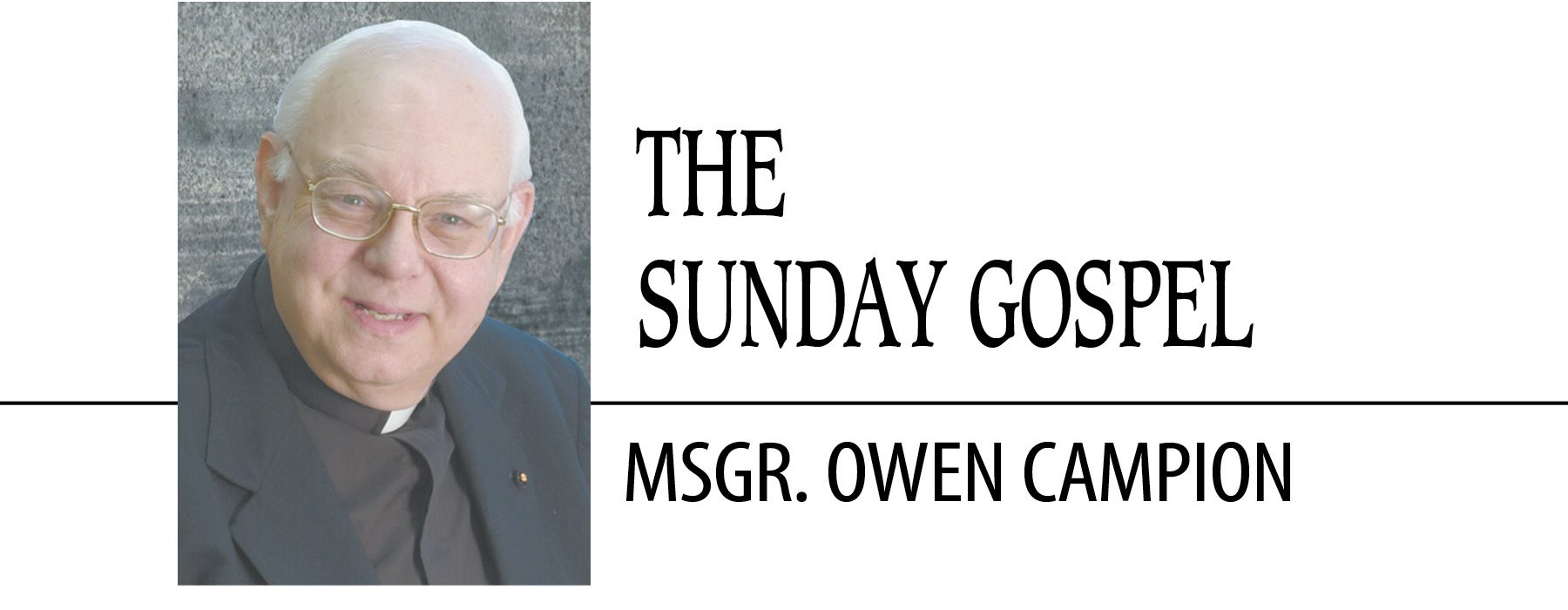February 8, 2020 // The Sunday Gospel
Followers of Jesus are a light unto the world
Fifth Sunday in Ordinary Time
Matthew 5:13-16
The Book of Isaiah’s third section is the source of this weekend’s first reading. Scholars believe that this section was written perhaps in Jerusalem for the Hebrew remnant that had returned from Babylon.
This assumption puts the third section of Isaiah at a date after the epic Babylonian Captivity, 597-539 B.C., give or take, which ended when the Persian ruler, Cyrus, overtook Babylon. He allowed the Jews to return to their homeland after an absence of four generations. Probably few had ever seen their homeland.
Nevertheless, release from Babylon brought utter exhilaration to the exiles. But the opportunity was bittersweet. When the exiles reached their ancestral home, they found deprivation and want, conditions worse than those that they had experienced in Babylon.
In this section of the Book of Isaiah, the prophet reaffirmed God’s goodness, but the prophet also called upon the people themselves to provide for those in need. Then, they would experience the reward of returning home and the fullness of God’s promise to give them life and peace.
St. Paul’s First Epistle to the Corinthians provides the second reading. Paul addressed this epistle to Christians living in Corinth, then one of the major cities of the Roman Empire. Rich, decadent and sophisticated, Corinth was a center of culture and vice at the time.
Nearby was Athens, the very symbol of wisdom and logic. Paul had preached in Athens, although not with great success.
In his epistles, he forever answered skeptics who asked if the Christian Gospel made any sense. After all, the Gospel ran counter to every conventional pattern of thought. Finally, and most importantly for so many, the founder of Christianity, Jesus of Nazareth, had been legally executed as a common criminal and as a traitor to the empire.
In response, Paul insisted that he relied upon a source more dependable than human reasoning: namely, the Holy Spirit. He spoke not with words of “human wisdom.”
St. Matthew’s Gospel furnishes the last reading, a collection of two brief statements by Jesus, given in clear imagery for the audience.
First, Jesus told the disciples that they were the “salt of the earth.” Next, the Lord admonished followers to be the “light of the world.” Salt and light hardly are unknown in conversation today, but in ancient times, they had a symbolism greater than that pertaining now.
At the time of Jesus, salt was precious. Roman soldiers were paid in salt. (“He is not worth his salt.”) “Salary” derives from this practice.
Salt could be unrefined. Dust or sand usually mixed with salt. The less dust and sand, the better the salt.
Today, people are accustomed to bright light at night. Then, artificial light was weak. Since night was threatening, light had a very special value. It enabled security and freedom. Jesus urged disciples to uplift earthly society by being “salt” and “light.”
Reflection
Gently, but deliberately, the Church is guiding us onward from its introduction of Jesus of Nazareth as son of the human Mary, Son of God and Redeemer of the sinful human race, as given at Christmas, Epiphany and the feast of the Lord’s Baptism. It is challenging us to respond to Jesus.
These readings are clear. Discipleship is no mere lip service. It is the actual and intentional imitation of Christ in our daily lives.
Matthew insists that believers have a strength upon which to draw as they illuminate the world, a strength issuing from the grace of their faith. As disciples, they do not stumble through darkness. They are pure salt, not contaminated by the debris of sin.
It is not automatic. Christians must allow the light to guide them. They must rid themselves of impurities. This is difficult. They must fortify their Christian resolve. Such is discipleship.
The best news. Delivered to your inbox.
Subscribe to our mailing list today.






